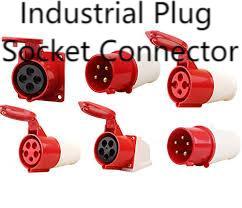Nante Industrial Plug Socket Connector Field Integration Guide

Selecting the right connector early prevents avoidable downtime, which is why many engineers now insist that an Industrial Plug Socket Connector be matched precisely to system needs during design, and why a correctly specified Industrial Plug Socket Connector reduces installation errors and long-term maintenance costs. Thoughtful connector selection accounts for electrical characteristics, mechanical stressors, environmental exposure, and the realities of field servicing — turning a single connection point into a durable, testable interface.
Define the Electrical and Mechanical Requirements First
Begin by documenting the electrical profile: nominal voltage, continuous current, motor inrush, harmonics, and required fault-clearing coordination. Mechanical expectations are equally important — vibration, shock, and frequent mating cycles dictate housing toughness and contact metallurgy. Early collaboration between electrical designers and mechanical engineers ensures connector size, pin configuration, and retention methods match the equipment lifecycle and reduce surprises at commissioning.
Environmental Sealing and Contamination Control
Connectors deployed in industrial settings face dust, moisture, oils, and chemical exposure. Choose sealing strategies that match the environment: IP67 or higher for washdown zones, IP54 for sheltered indoor use. Consider gland choices and cable preparation that preserve ingress protection after routing and termination. For corrosive atmospheres, specify corrosion-resistant finishes and sacrificial elements that protect critical contact surfaces over time.
Contact Technology and Thermal Performance
Contact resistance and heat dissipation are major determinants of connector reliability. Low-resistance contact materials and high-quality plating reduce hotspots; contact geometry—such as multi-point or spring-loaded contacts—maintains low resistance despite cycle wear. Thermal modelling should guide conductor sizing, contact selection, and recommended torque values; combine this with thermal imaging during commissioning to verify real-world temperature rise under typical loads.
Nante-Compatible Accessories and Modular Options
Using a connector family with an accessory ecosystem simplifies field upgrades and spare management. Look for compatible mounting frames, blanking plates, sealing collars, and locking collars that preserve protection when reconfiguring systems. Modular panels that accept multiple plug types allow rapid changeover across production lines and reduce stocked part varieties, improving uptime and simplifying logistics for maintenance teams.
Installation Practices, Commissioning Tests, and Diagnostics
Proper installation prevents a large share of connector failures. Use calibrated torque tools, follow conductor preparation guidelines, and apply manufacturer-recommended lubricants or anti-oxidation compounds where specified. Commissioning tests should include continuity and contact-resistance checks, insulation resistance tests, and a thermal run at nominal and peak loads. Implement a diagnostics plan—periodic resistance checks and thermal scans—to spot early wear before it produces a failure.
Lifecycle Planning and Spare-Part Strategy
Standardize connector families across similar installations to reduce spare-part inventory. Maintain a small, prioritized stock of common seals, mating plugs, and replacement contacts for rapid repairs. Track mating-cycle history in asset records so you can pre-emptively replace heavily used connectors. Vendors that provide clear cycle-life data, replacement part numbers, and simple refurbishment procedures help operations plan predictable maintenance windows.
Safety Integration and Control Interlocks
Where safety matters, select connectors with interlocks or auxiliary contacts to prevent live mating or to provide status feedback to control systems. Staged-contact designs and pre-mate earth grounding reduce arcing risk on hot-pluggable circuits. Ensure any interlock logic integrates with existing safety controllers and that wiring practices follow lockout/tagout procedures to protect maintenance personnel.
Real-World Use Cases and Lessons Learned
In automated production cells, connectors that tolerate vibration and frequent changeovers reduce unplanned stops. In temporary power for events or construction, rugged panel-mount banks with secure locking prevent accidental disconnections. In chemical plants, connectors with specified sealing and corrosion resistance outperform standard units by months or years. Learning from field failures — often tied to improper gland selection, loose terminations, or inadequate thermal margins — is invaluable for improving specifications.
Selecting the correct connector family and supporting accessories transforms a vulnerable junction into a long-lived, testable system component. Prioritize mechanical robustness, appropriate sealing, contact performance, and an accessory ecosystem that eases field changes. For a detailed technical overview and industry guidance, consult the resource at https://www.nante.com/news/industry-news/what-is-industrial-plug.html



